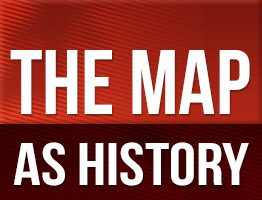This map is part of a series of 19 animated maps showing .
▶ View series: Europe's colonial expansion, 1820-1939
SubscribeEuropean Imperialism in the 19th Century
This map is part of a series of 19 animated maps showing the history of Europe's colonial expansion, 1820-1939.
During the first decades of the 19th century, Russia had already conquered a large part of its Eurasian Empire, while independence movements in Central and South America greatly reduced the former Portuguese and Spanish Empires.
Other European colonial possessions consisted of a few populated territories and a collection of islands and trading posts. Established at strategic points along the great sea routes, they facilitated the development of international trade.
Throughout the century, the industrial revolution and demographic growth in Europe boosted colonial expansion. Asia attracted greater interest from the end of the 1850s, while colonization of Africa began in earnest during the 1880s. By the time the First World War broke out, almost the whole continent was under foreign domination.
This stampede across the world, fuelled by aggressive competition between European nations, led to the doors of China which was forced to engage in trade. It was divided into spheres of foreign influence, thus precipitating the fall of the Imperial Dynasty.
In the Middle East, Persia was also parcelled into spheres of influence, while the Ottoman Empire, its territory now greatly reduced, suffered from European economic ascendancy, a prelude to its dismantlement.
In 1914, Great Britain and France confirmed their position as the two Great Imperial Powers. Taking different approaches to enforcing their colonial domination, they left their marks on the history and society of their African and Asian Empires.
- Germany came late to colonial competition, obtaining scattered possessions in Africa, a few archipelagos in the Pacific, and North-East New Guinea.
-The Netherlands managed to consolidated their hold over the greater part of Dutch East Indies
- Portugal extended its long-held dominions in Angola and Mozambique and retained a number of trading posts in Asia
- Italy is present in Somalia and Libya.
- Belgium inherited, after some hesitation, the personal property of King Leopold II in the Congo.
- Spain lost all but a few African possessions, after ceding the Philippines to the United States in 1898.
The emergence of North American and Japanese imperialism challenged the monopoly of military, political and economic domination by European Powers in the world.
